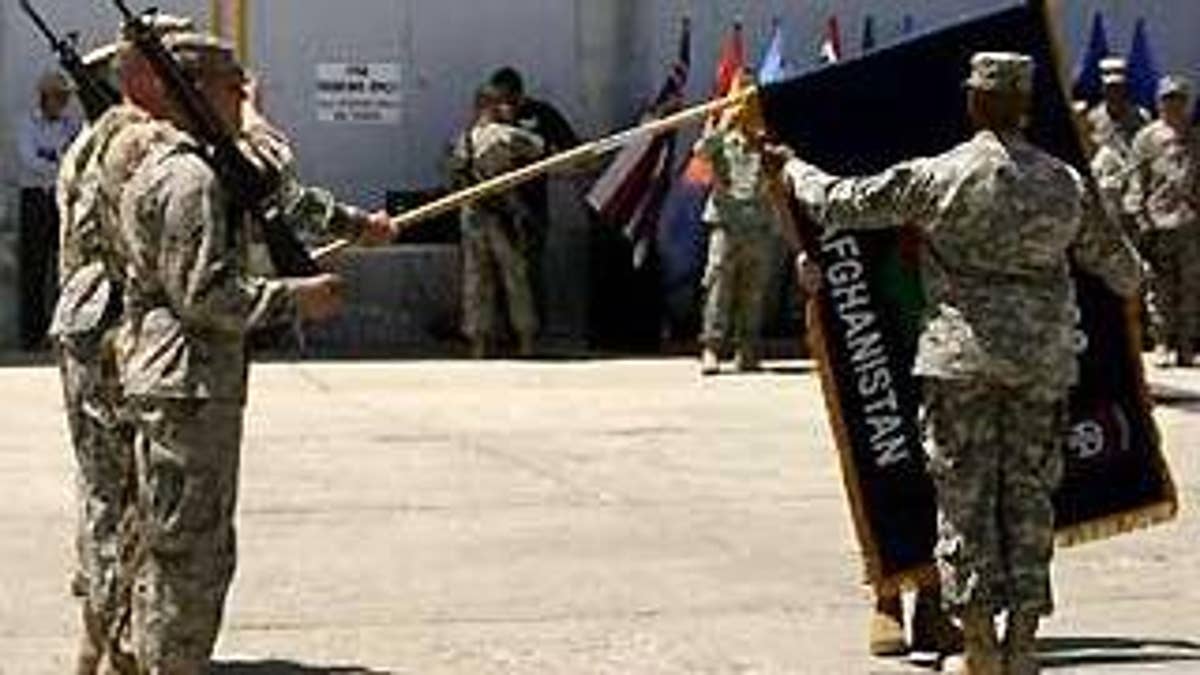
By reading Miranda rights to suspected terrorists at military detention facilities in Afghanistan, the United States could be accelerating a shift from a war against terrorists to a courtroom battle against criminal defendants, Republicans and terrorism analysts warn.
The Department of Justice acknowledged Wednesday that FBI agents have read terrorist suspects their rights overseas, at Bagram Air Base in Afghanistan and other places, to "preserve the quality of evidence obtained."
But Justice Department spokesman Dean Boyd insisted the move does not represent a "policy change" and that no "blanket instruction" was given to the FBI to Mirandize detainees. Officials said it was a practice that began under the Bush administration.
Gen. David Petraeus, head of Central Command, said Thursday that FBI agents, not members of the U.S. military, have read rights to detainees in only a "very limited number of cases" and that the practice had been used in other countries previously.
"This is the FBI doing what the FBI does," Petraeus said. "So we are comfortable with this."
However, a senior Republican on the House Intelligence Committee who just returned from Afghanistan and Bagram said the practice is causing chaos, confusion and frustration in the field. He was concerned it was being expanded and could impede intelligence operations.
"We don't want our soldiers thinking, is this a law enforcement event or is this a combat event," Rep. Mike Rogers, R-Mich., told FOX News Thursday. "It's shocking to believe that we're going to give non-United States citizens in combat zones who are training, equipping and planning to kill United States citizens and our military and treat them as if they're U.S. citizens and afford them those rights."
Rep. Pete Hoekstra, R-Mich., ranking Republican on the House Intelligence Committee, told FOXNews.com that's exactly what's happening.
"They're going back to a law enforcement mentality," he said. "I think it's a really lousy way to fight a war. ... This dramatically changes the way that our frontline forces work."
The FBI's role in Mirandizing suspects is an apparent product of reported plans for the agency to expand its role in counter-terrorism operations under what's called the "global justice" initiative. According to reports, FBI agents would take over some CIA responsibilities under the assumption that most of these suspects would end up in a court of law.
But while the administration suggests this will help legitimize the "quality of evidence obtained" should the suspects come for trial, others worry that investigators and interrogators will miss out on valuable information.
They wonder what would have happened if Khaled Sheikh Mohammad, a self-confessed architect of the Sept. 11 terrorist attacks, had been read his Miranda rights.
"If you get captured, just say you want a lawyer," Hoekstra said. "In today's world if we picked up KSM today, the first thing we'd say to KSM is you have the right to remain silent."
Terrorism analyst Neil Livingstone called the move a "dramatic shift" in policy.
"(We're) going back to the bad old days that gave rise to 9/11 when we treated terrorism as though it were a criminal problem, not as a war or not as an attack on the United States," he said. "We don't want to have to make a legal determination every time we go after a terrorist whether we've got a good case or not, we should go after them as enemy combatants of the United States."
Some lawmakers are increasingly concerned the administration is moving too far away from what was once called the Global War on Terror.
The shift in tone comes as the Obama administration tries to heal rifts with the Muslim world that deepened during the Bush administration's prosecution of the war. The Abu Ghraib prison scandal and persistent controversy surrounding the Guantanamo Bay detention camp, as well as the Iraq war as a whole, have hurt America's image abroad.
President Obama has tried to correct this by outlawing so-called "enhanced interrogation techniques," calling for Guantanamo's closure, drawing down the Iraq war and making a series of optimistic appeals to the Muslim world -- like his speech last week in Cairo, Egypt.
Though it has followed the advice of some conservatives by retaining the military commission system to try some detainees and arguing against the release of photos that allegedly show prisoner abuse, the administration has also made a rhetorical shift that signals the war is not viewed the way it once was. It refers to the battlefield as the "overseas contingency operation" and officials often refrain from using the term "terrorism" in public addresses.
Hoekstra called the reading of Miranda rights "politically correct" and part of a "continuing shift."
FOXNews.com's Judson Berger and FOX News' Mosheh Oinounou contributed to this report.




